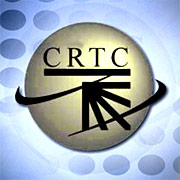|
|
|
|
In this edition of Views and News, ETI is pleased to discuss a recent CRTC order on Canadian broadband unbundling obligations and its implications in the US. We also present the first piece of a two-part exploration of both sides of the Net Neutrality debate over "Paid Prioritization" and "Network Management"
Read on below, or navigate over to
econtech.com
where you can read online, or download a
printer-friendly version.
|
|
Canadian regulators expand requirement for nondiscriminatory provision of wholesale broadband transmission to rival carriers
|
|
 Canadian regulators (the Canadian Radio-television and Telecommunications Commission – CRTC) have consistently treated high-speed Internet access as a common carrier telecommunications service, whether provided over ILEC facilities or over those owned by cable companies. In 2006 and 2007, the CRTC adopted a requirement that Canada's larger ILECs and cable carriers make high-speed Internet access services available to competitors at whatever speeds the incumbents offer to their own retail Internet customers – the so-called "speed-matching" rule. After ILECs and cable carriers mounted challenges to the speed-matching requirements – particularly as they applied to higher-speed services – the CRTC initiated a proceeding to examine the current status of wholesale and retail Internet access competition to determine what changes, if any, were appropriate. ETI had submitted expert evidence in that proceeding on behalf of the largest CLEC in Canada. The CRTC has just released an order that not only reaffirmed the earlier ruling, it even broadened the speed-matching requirements with respect to incumbents' high-speed Internet access services...
Canadian regulators (the Canadian Radio-television and Telecommunications Commission – CRTC) have consistently treated high-speed Internet access as a common carrier telecommunications service, whether provided over ILEC facilities or over those owned by cable companies. In 2006 and 2007, the CRTC adopted a requirement that Canada's larger ILECs and cable carriers make high-speed Internet access services available to competitors at whatever speeds the incumbents offer to their own retail Internet customers – the so-called "speed-matching" rule. After ILECs and cable carriers mounted challenges to the speed-matching requirements – particularly as they applied to higher-speed services – the CRTC initiated a proceeding to examine the current status of wholesale and retail Internet access competition to determine what changes, if any, were appropriate. ETI had submitted expert evidence in that proceeding on behalf of the largest CLEC in Canada. The CRTC has just released an order that not only reaffirmed the earlier ruling, it even broadened the speed-matching requirements with respect to incumbents' high-speed Internet access services...
Continue reading at econtech.com
|
|
Net Neutrality, "Paid Prioritization," and "Network Management" – Part I
|
|
 Among the most contentious issues in the "Net Neutrality" debate are those that revolve around the right of Internet access providers to charge customers for prioritizing certain traffic and otherwise to engage in what they describe as "network management" practices whose effect would be to limit or prevent outright certain uses of their Internet access services. As the debate has intensified in recent months, the various positions on these subjects generally fall between these two bookends:
Among the most contentious issues in the "Net Neutrality" debate are those that revolve around the right of Internet access providers to charge customers for prioritizing certain traffic and otherwise to engage in what they describe as "network management" practices whose effect would be to limit or prevent outright certain uses of their Internet access services. As the debate has intensified in recent months, the various positions on these subjects generally fall between these two bookends:
-
Certain public interest organizations and Internet purists want service providers to be prohibited from examining or affording any special treatment to Internet traffic based upon the content of the transmission. They oppose any form of "paid prioritization" and content-based "network management." To them, such practices are an anathema to a truly "open" Internet, and they will be satisfied with nothing short of an outright prohibition of any such practices.
- The service providers' position is that it is their network and that they are entitled to run it as they see fit. This view is perhaps best summarized in a remark made several years ago by former SBC/AT&T CEO Ed Whitacre, when he said: "How do you think they're going to get to customers? Through a broadband pipe. Cable companies have them. We have them. Now what they would like to do is use my pipes free, but I ain't going to let them do that because we have spent the capital and we have to have a return on it. So there's going to have to be some mechanism for these people who use these pipes to pay for the portion they're using."
This is the first of two articles in which we explore those aspects of each side's argument, perhaps as a basis for ultimately reaching common ground. This month, we examine "paid prioritization" and the closely-related "managed services" issue. In October, we will address the controversy regarding "network management."
"Paid Prioritization"
One of the most controversial aspects of the net neutrality debate centers around whether Internet service and backbone network providers should have the right to offer customers prioritized delivery of Internet traffic and to impose additional charges for such prioritization services...
Continue reading at econtech.com
|
|
|
|
About ETI. Founded in 1972, Economics and Technology, Inc. is a leading research and consulting firm specializing in telecommunications regulation and policy, litigation support, taxation, service procurement, and negotiation. ETI serves a wide range of telecom industry stakeholders in the US and abroad, including telecommunications carriers, attorneys and their clients, consumer advocates, state and local governments, regulatory agencies, and large corporate, institutional and government purchasers of telecom services. |
|
|
|
|